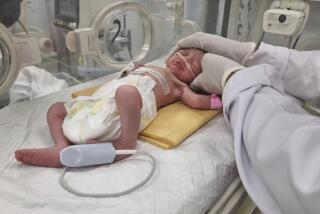A cry from the heart in Yemen: ‘We are a nation of bereaved’
In the last four months of devastating war in my country, and in my years as a journalist before this conflict began, I have seen and written about many terrible things. But nothing prepared me for this.
On July 24, my uncle, my aunt and their five children – the oldest of them 16 and the youngest 5 – died in a barrage of airstrikes in the port city of Makha, in Taiz province, a bombardment that killed some 80 people in all. My aunt was six months pregnant with what would have been their sixth child.
All over Yemen there are people like me, who have suffered the loss of a loved one – or of a whole family dear to them. The air war that began on March 26, when a Saudi-led military coalition commenced its offensive against Shiite Muslim Houthi rebels and their allies, has killed more than 3,000 people, by the estimates of international groups. Many believe the real figure is much higher.
So we are a nation of bereaved, trying to make sense of our overpowering grief.
Quite often, I interview people who tell me about the losses they have suffered. It has sometimes surprised me that people are so willing – eager, even – to talk about their dead relatives. Now I understand their need to speak about these things.
I want to tell everyone about my uncle, Sadiq Qadasi, who was also my great friend. He was 49 years old. His wife, Intithar Qaid, was 37. Their children were Mohammed, Ahmed, Abdullah, Asma’a and Nusaibah.
My other uncle, Mohammed, begged the doctors for a different outcome, even when he knew they all were dead. He asked them: Can you at least save the unborn baby?
“May God bless my brother,” he told me on the phone, in tears. “Now he has died with nobody to carry his name.”
I could not go to the funeral. I knew what the bodies would look like. For months, our media have been full of scenes of carnage – bloodshed and scattered, mutilated body parts. How ugly is war! I hope that when it ends, our humanity does not end with it.
I am used to writing about events and describing them as best I can. But when it comes to this, the words are slipping from my brain. I cannot express what is in my heart.
Families here in Yemen are large but very close-knit. Everyone in mine was shattered by this news, especially my mother, facing the death of her brother. My particular role to play in this tragedy was that I was the first in my family to know of their deaths.
When I learned of the air raids that struck the area where they lived, I tried to call my uncle, but his phone was off. Later, I called my sources at the Red Cross, after a rescue team had arrived. I gave them my uncle’s name, and in an hour they told me that he and his family were among the dead.
I did not know what to do or whom to tell. I waited in tears until my other uncle reached the area. He undertook the task of informing everyone else in the family.
Every day my Uncle Sadiq either called me or sent me text messages telling me to take care of myself, because he knew my work takes me into harm’s way. “Stay away from clashes, from military sites,” he said. “There is nothing worth dying for, but so many things that are worth living for.”
He also said often: “Take care of your family.”
I have sometimes told people who lost someone close to them to be strong, to accept what fate has dealt them. But I find I cannot do this. When I received this news, I wept for hours. My strength and courage evaporated. I understood what it means to lose those who were beloved in the blink of an eye.
On my phone, I have text messages from my dead uncle that I read every day. I listen to the cassettes of songs that he gave me. I remember the foods he liked, the way he dressed, his cologne. I hear the echoes of his laughter.
I think of his wife, my Aunt Intithar, and their youngest son, Ahmed, who was just 5. I had not seen my uncle and his family recently because of the chaos caused by the war, but he had told me on the phone that Ahmed not only looked like me but acted like me too. Remembering this made me cry the hardest.
At home in Sana, I received callers who came to give their condolences. There is so much of that now, this paying of respect. So many people have dead to remember and honor.
Well-wishers told me: “Life goes on. You will overcome your pain.” I am not convinced. Sadiq was not just my uncle; he was like a father to me. Everyone in his village wept for his loss.
I think of his soul, of the soul of my aunt, of the souls of my five cousins, and the souls of so many others dead in this war.
Al-Alayaa is a special correspondent. Cairo bureau chief Laura King contributed to this report.
ALSO:
Hillary Clinton makes a big ad buy targeting voters -- and maybe Joe Biden
Girl, 16, dies of wounds suffered in attack on Jerusalem gay pride parade
Immigrants object to growing use of ankle monitors after detention
More to Read
Start your day right
Sign up for Essential California for news, features and recommendations from the L.A. Times and beyond in your inbox six days a week.
You may occasionally receive promotional content from the Los Angeles Times.






